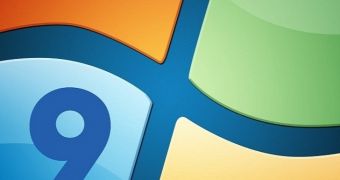Windows 9 is expected to be an operating system that fixes the desktop for PC users by adding a Start menu and other improvements, but it appears that Microsoft is also preparing some pretty big changes for tablet users as well.
According to a new report published by Neowin, Windows 9 might actually remove the desktop entirely on tablets with screens smaller than 9 inches, where such a feature doesn't make much sense.
The idea behind this new plan is as simple as it could be: using Windows on the desktop on a tablet with a very small screen, measuring 7 or 8 inches, is nearly impossible, as everything is so small that you can barely see something.
The same thing about Office, as all tablets running the RT version of Windows are coming with the productivity suite pre-installed from the very beginning, so it's pretty hard to work on a document on a 7-inch tablet.
Microsoft, however, has prepared a more complex plan that would make all of these a bit easier for everyone.
While it might remove the desktop on Windows 9 versions supposed to be installed on small tablets, the company is also working on a touch-optimized version of Office which could thus allow owners of such devices to work on documents right in the Modern UI.
Metro will become the main and only working environment for ARM devices and if nothing is changed in the coming months, the operating system could be offered completely free of charge to manufacturers.
Redmond is also providing OEMs with a free copy of Windows 8.1 with Bing in order to bring more affordable devices to the market, but it appears that the company is willing to continue this plan with Windows 9 too.
Previous reports on the matter revealed that Windows 9, which might see daylight in early 2015, could come with options to disable Metro entirely, but that's only possible on desktop computers were users are still relying on mice and keyboards as the main input method. With the help of a Start menu, the desktop would benefit from pre-Windows 8 functionality, which Microsoft hopes would attract more users to its modern platform.
Windows 9 might be offered free of charge to those running Windows 7 Service Pack 1 or Windows 8.1 Update, again in an attempt to boost the adoption of its new operating system.
As usual, take all of these with a pinch of salt until Microsoft breaks the news on Windows 9, which according to some rumors is expected to happen later this month at the Worldwide Partner Conference.

 14 DAY TRIAL //
14 DAY TRIAL //